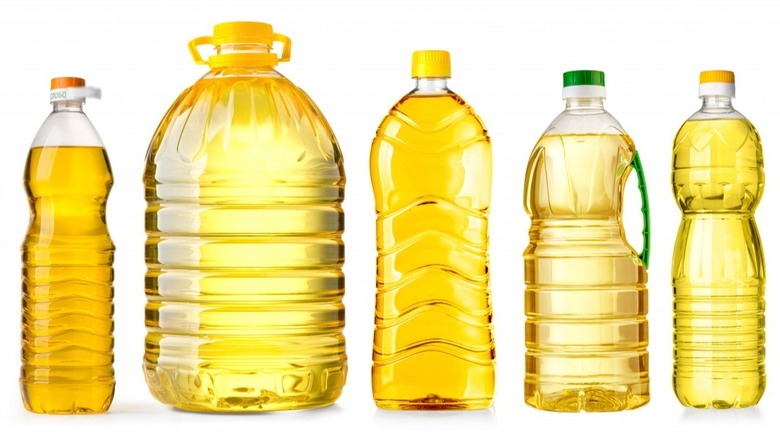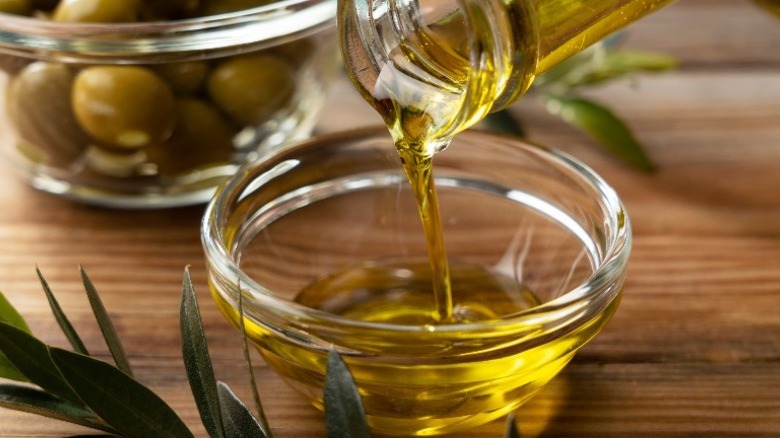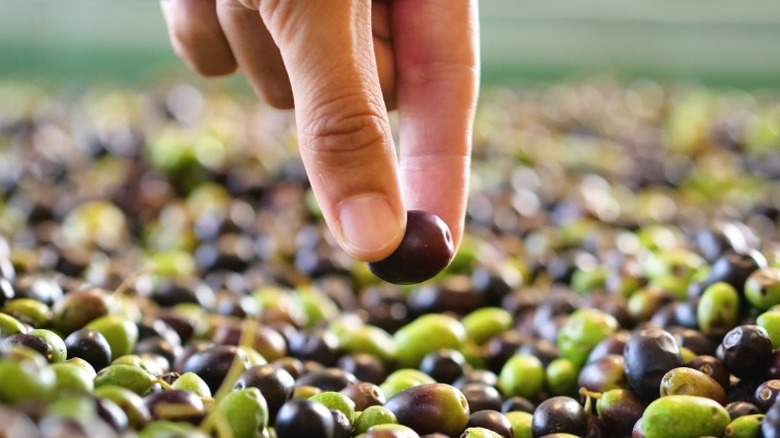Why You Should Avoid Cheap Olive Oil
Correction 6/15/22: This article has been updated to include clarification about research into olive oil quality in the United States.
Chances are you have a bottle or two of olive oil in your pantry ready to assist you in roasting vegetables or searing meat. But have you considered the quality of the olive oil you're using? And has that bottle in your pantry sat there for nearly six months — or more?
There's a chance you may be cheapening your best dishes with low-grade diluted oil and not even know it, Business Insider explains. The question of whether olive oil sold in the United States is diluted with cheaper oils remains a contentious one, with journalists such as Larry Olmsted, who spoke with Business Insider in 2017, arguing that the FDA has found numerous instances of alterations in olive oil. (Still, the outlet notes that some studies, including research published in the Journal of the American Oil Chemists' Society in 2015 and in Plant Foods for Human Nutrition in 2012, "have found low rates of adulteration" in olive oil.)
The history of modifying olive oil is vast with numerous examples of fraud dating back thousands of years, per a 2014 report from the Congressional Research Service. How this all affects you lies in the quality and nutritional value of the food you're preparing and serving. There's a large difference between quality olive oil and its diluted counterparts, and learning these differences may benefit your taste buds and even your bank account.
Why you should buy quality olive oil
Sometimes the short-term gain of spending less on groceries, especially cooking oil, can seem like a real benefit. But in the case of olive oil, you should consider aiming for a higher price tag. Olive oil that comes at a higher cost often has origin information listed on the bottle.
Higher price points also lead to better packaging; cheaper oils are filled in clear glass or plastic, while higher-quality oils are packaged in heat-resistant, darker glass (per Real Simple). Once you have a quality bottle, Maia Hirschbein, oleologist for California Ranch, tells Cooking Light she recommends using it within a two-month time frame to ensure freshness up to the last drop.
Additionally, when you shell out for better olive oil, you're getting a more nutrient-dense ingredient on your plate. According to a 2012 study published in the journal Plant Foods for Human Nutrition, fresh extra virgin olive oil, in particular, has high anti-inflammatory agents, as well as higher amounts of antioxidants due to the large polyphenol count.
Taste the difference of high-grade olive oil
Now that you know there are different brands and levels of olive oil when it comes to purity, how can you use your high-class oil to make a show-stopping meal? According to co-founder of the Extra Virgin Alliance, Alexandra Devarenne, extra virgin olive oils have distinct tastes. And depending on what part of the world they come from, the type and ripeness of olives, used along with the phenol content, there can be many different variants regarding flavor (per Well + Good).
Regardless of which variety you end up with, test your olive oil in a recipe where it serves as one of the main ingredients, and you won't be disappointed. Crispy smashed potatoes or even something sweet like a classic olive oil cake will ensure you're getting the full experience of pure olive oil.
The truth remains: The quality of your olive oil makes not only a difference in the flavor of your dishes but in the overall quality of your health.


